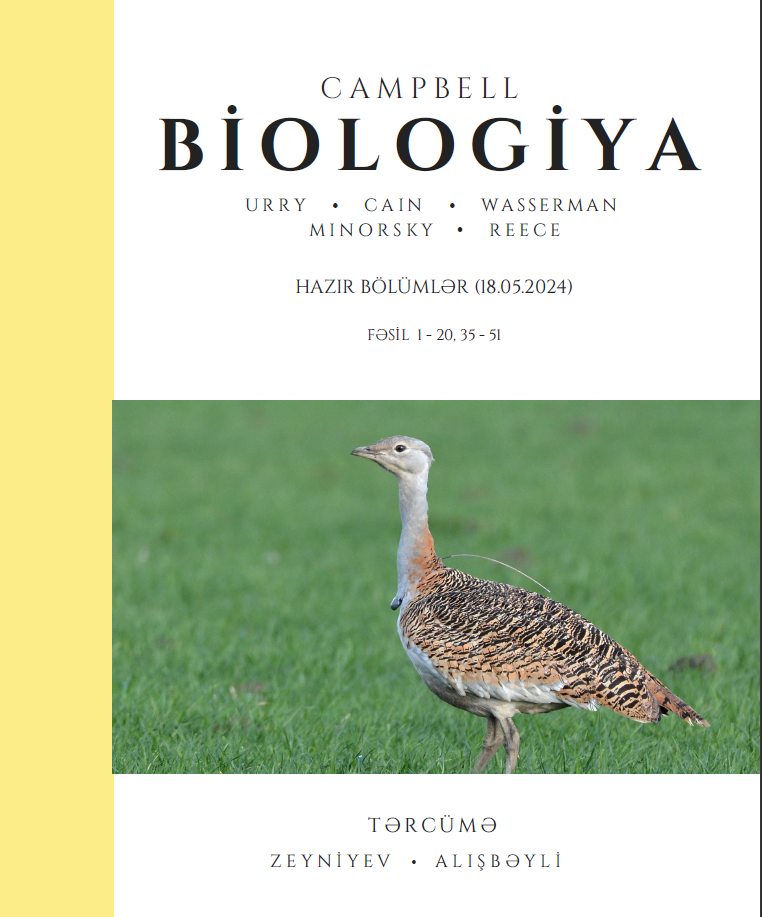Xəbərdar ol
Biz milyarderlərin saytları üzərindən icmamızla əlaqə saxlamağın yaxşı fikir olmadığına inanırıq, ona görə də onlardan istifadəni minimuma endirmişik. İşlərimizlə bağlı yenilikləri, maraqlı hesab etdiyimiz digər işləri, kitabları, məqalələri və s. birbaşa olaraq email ünvanınızda əldə etmək, yəni bizimlə birbaşa əlaqədə olmaq istəyirsinizsə sizi bülletenimizə qeydiyyatdan keçməyə çağırırıq.
Sual ver
Elm, elm tarixi, fəlsəfəsi, təhsili ilə bağlı səni maraqlandıran, narahat edən sualın varsa onu buradan bizə ünvanlaya bilərsən, yoldaş oxucu. Başqa məsələlərlə bağlı suallarını isə Əlaqə bölümündəki formdan göndərə bilərsən.
Önə Çıxan Kitablar »
Matthew D. Herron, Peter L. Conlin, William C. Ratcliff
Among the most important innovations in the history of life is the transition from single-celled organisms to more complex, multicellular organisms. Multicellularity has evolved repeatedly across the tree of life, resulting in the evolution of new kinds of organisms that collectively constitute a significant portion of Earth’s biodiversity and have transformed the biosphere. This volume examines the origins and subsequent evolution of multicellularity, reviewing the types of multicellular groups that exist, their evolutionary relationships, the processes that led to their evolution, and the conceptual frameworks in which their evolution is understood.
Matthew Cobb
This is the story of our quest to understand the most mysterious object in the universe: the human brain.
Today we tend to picture it as a computer. Earlier scientists thought about it in their own technological terms: as a telephone switchboard, or a clock, or all manner of fantastic mechanical or hydraulic devices. Could the right metaphor unlock the its deepest secrets once and for all?
Stephen Jay Gould
How smart are you? If that question doesn’t spark a dozen more questions in your mind (like “What do you mean by ‘smart,'” “How do I measure it” and “Who’s asking?”), then The Mismeasure of Man, Stephen Jay Gould’s masterful demolition of the IQ industry, should be required reading. Gould’s brilliant, funny, engaging prose dissects the motivations behind those who would judge intelligence, and hence worth, by cranial size, convolutions, or score on extremely narrow tests. How did scientists decide that intelligence was unipolar and quantifiable? Why did the standard keep changing over time? Gould’s answer is clear and simple: power maintains itself. European men of the 19th century, even before Darwin, saw themselves as the pinnacle of creation and sought to prove this assertion through hard measurement. Gould’s now-classic work delves into the difficult history of efforts into quantifying intelligence and using such measures to justify social inequalities. (Source: Goodreads)
Başqaları Yazırlar »
Akademik İcmallar »
Inequality is one of the main drivers of social tension. We show striking similarities between patterns of inequality between species abundances in nature and wealth in society. We demonstrate that in the absence of equalizing forces, such large inequality will arise from chance alone. While natural enemies have an equalizing effect in nature, inequality in societies can be suppressed by wealth-equalizing institutions. However, over the past millennium, such institutions have been weakened during periods of societal upscaling. Our analysis suggests that due to the very same mathematical principle that rules natural communities (indeed, a “law of nature”) extreme wealth inequality is inevitable in a globalizing world unless effective wealth-equalizing institutions are installed on a global scale.

